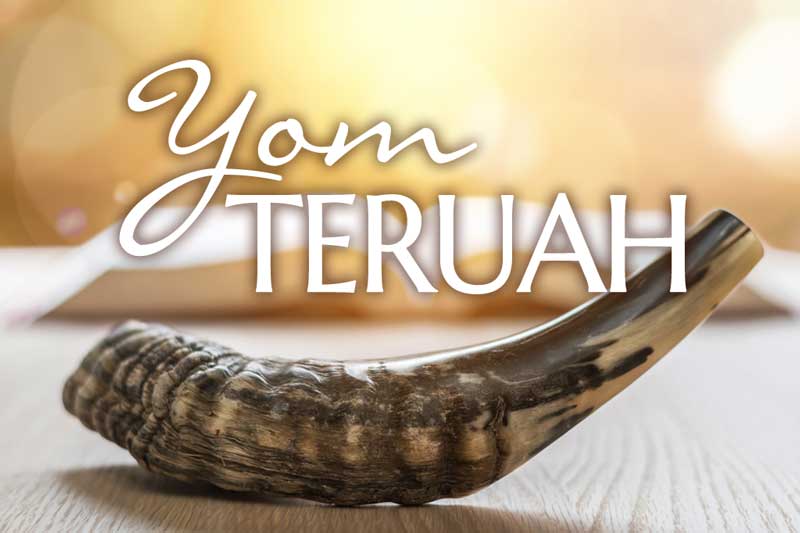The Spiritual Significance of Yom Teruah
Feast
Feast of Trumpets
Biblically Accurate or Hebrew Name
Yom Teruah (Pronounced YOM te-ROO-ah), translated “day of sounding” or “day of blasts” (of the shofar)
Biblical Significance
Yom Teruah is “a day of complete rest for remembering, a holy convocation announced with blasts on the shofar.” (Leviticus 23:24 CJB)
Spiritual Relevance
Yom Teruah is a wake-up call and an announcement of the coming of the King. When the shofar blasts, there is very little time left to prepare for the King’s arrival, as He follows close behind. Yom Teruah will be fulfilled soon in the Second Coming—the last wake-up call for mankind (1 Thes. 4:16-17). As we observe this feast now, awaiting His return, we hear the shofar sound in our hearts and we are called to rest in His will and remember to whom we belong. The shofar is meant to awaken God’s people and cause us to remember our covenant. “Wake up, O sleeper, rise from the dead, and Christ will shine on you.” We must awaken our brethren and redeem the time, as the days are evil (see Ephesians 5:14-16). (For more on the sounding of the shofar awakening God’s people, see 1 Cor. 15:51-52 and Rev. 20:4.)
Observance Suggestion
This day is a special Shabbat, so be sure not to do any ordinary work (at a job or housework/chores), and gather together with other believers. Focus on prayer and worshipping God. Go outside at sundown (if you are not already there) and sound the shofar. There is an official blast for this day called a “teruah”, but it is hard to sound. It sounds like a fire alarm and requires skilled shofarim (shofar blowers). For those of us less experienced, many like to sound three simple blasts into each of the four directions. This will equal 12 blasts total (the number for divine government), prophetically symbolizing the coming of the King and the establishment of the Kingdom of God in our area. Yom Teruah is also a good day to present to God promises yet unfulfilled because this is a time of awakening faith in our spirits as well.
Notes
This day is often referred to as Rosh Hashanah, which translated means “Head of the Year”. This name of the feast refers to the Jewish civil calendar, which begins on this day. However, this is not the beginning of the Biblical New Year, which comes 13 days prior to Passover (see Exodus 12:1-2). On another note, non-Jewish translations of the Bible often refer to a “shofar” as a “trumpet”. They are not the same. There are texts in which ADONAI commands the construction and use of a trumpet. There are also texts in which a shofar, or ram’s horn, is blown. This feast includes the blowing of a shofar, not a trumpet. In contemporary times, the long shofars we sound are not ram’s horns at all, but horns of Kudu antelope from Africa.
